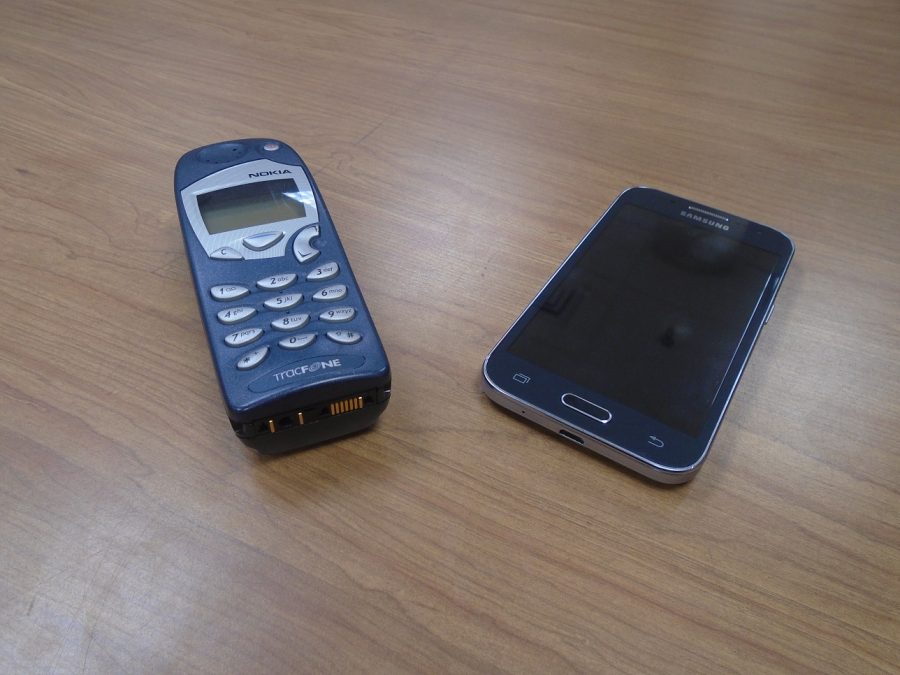“Out of Memory”
A Nokia 5165 from 1998 on the Left, and a Samsung Galaxy Core Prime from 2014 on the right
In 1965, Gordon Moore, the cofounder of Intel wrote a paper that stated computer processing power would double every year. This concept became known as Moore’s Law, and time and time again proved itself to be relatively true. It’s not hard to see the growth from an MS-DOS 3.0 computer from the late 80s and a modern computer, something almost 10 thousand times more powerful, but where things really become obvious is with mobile phones. The first iPhone, when it was released in 2007, had two memory options: 4 gigabytes or 8 gigabytes. 8 years later, the iPhone 7 has options of 32, 128 or 256 gigabytes of memory. Flash storage, like SD cards and Flash drives, are the most obvious to exponentially increase, with prices steadily decreasing for the smaller sizes, but what does this mean for the people using technology?
The most obvious effect is more capabilities. Never before have we had so much access to cheap digital storage. Archiving information is much simpler than it would have been 10 years ago, but for the average person, this also opens the door for media consumption. The idea of storing music or movies on personal tech wasn’t something easily accessible until this advancement in storage technology. More important than any of this, is size change for storage. Not only is storage becoming larger, but the physical hardware is becoming smaller. Smart phones could never exist if it weren’t for the ability to contain what used to take up an entire room in your palm. As for more recent technology, Smart watches and other wearable tech are a great example. We needed to get to a point where storage was advanced enough to fit an entire computer into a watch sized space before we could have anything like the smart watches that have been flooding the market. In a sense, the advancements in storage technology are the only reason why we can be as dependent on technology as we are today.




